
一个由青年主导的哲学社团。
Civil disobedience: Are we obligated to obey the state? (on) / Zhepu
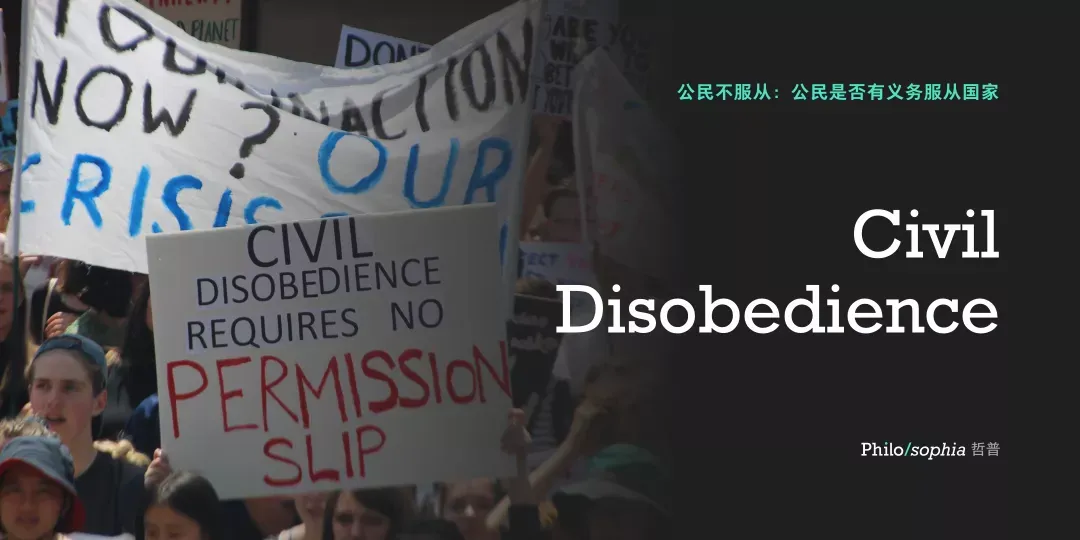
"This article was originally published on the public account philosophia on 2020.4.18"
Author / Useless (edited and revised by Yi Fengdi)
Political obligation is a concept that people often don't think about deliberately, but is often discussed intentionally or unintentionally in current public opinion. One of the most critical questions in the discussion of political obligations is: Do citizens have a (moral) obligation to obey the city-state? This question has yet to be asked in a richer form: Do citizens have a moral obligation to obey the city-state unconditionally? If it is conditional, then under what conditions? Do citizens have the right to rebel against the city-state? Even, do citizens have a moral obligation to resist the city-state under certain conditions? In what ways should citizens rebel against the city-state? Here I emphasize moral obligations because thinkers such as Hegel and Marx do not attribute the reasons for resistance to moral obligations, and the scope of discussion in this article is only limited to moral obligations.
Such questions are closely related to our lives. From a microscopic point of view, there is such a saying in "A Letter from a High School Student to "Aunt Fang Fang": Fang Fang "has a job in the city-state", so he must "submit City-state management", to be grateful. In the case of Snowden, is he justified in leaking secrets against the orders of the city-state? From a macro perspective, are non-violent resistance like Martin Luther King's human rights movement and violent revolution like the October Revolution just?
Political obligation is not a concept that can be taken for granted, it needs to be rethought. The academic research on this issue has a long history and is voluminous. This article will briefly introduce some of the viewpoints. What needs to be declared is that this article is more of an induction and generalization of a first-hand text. The author is just a repeater, intending to throw bricks and spark jade, and arouse readers' thinking and discussion on the issue of political obligations.
1 Socrates: Some Reasons for Obedience to the City-State
Regarding political obligations, the earliest discussion comes from Plato's "Kerry" (also known as "On Obligations"), which is the well-known chapter where Socrates chooses to accept the judgment and die. The death penalty of a philosopher by the city-state itself is the most classic example of whether a citizen should obey the city-state; in this short dialogue, Socrates also proposed almost all possible directions for later generations to support citizens' obedience to the city-state.
First of all, Socrates has a major premise: people cannot do unjust things, and cannot respond to unjust actions with unjust actions, that is, the source of the justice of an event has nothing to do with other things; this major premise Next, Socrates put forward three reasons why citizens are obliged to obey the laws of the city-state:
First, because the city-state nurtures its people and the people receive the favor of the city-state, the status of the city-state and its people is not equal. The relationship between the city-state and its citizens is similar to that between parents and children. Therefore, in the face of the wrong behavior of the city-state, the people can only express their opposition by persuading or leaving the city-state, and cannot violate (including breaking the law, breaking the contract with the city-state) and harm the interests of the city-state, otherwise it is betraying the people who raised you , and this is unjust.
Second, if a citizen is dissatisfied with the city-state, the city-state allows citizens to migrate freely. If the citizen does not emigrate, it means that the citizen agrees with the current state of the city. If the citizen agrees and then opposes, it is a betrayal , and betrayal is unjust. In fact, we can also understand Socrates’ point of view with a stronger condition: the city-state allows citizens to emigrate freely, whether citizens agree with the current state of the city-state, whether citizens choose to emigrate, and whether citizens can emigrate are all up to the citizens themselves. The thing is that the city-state does not hinder the choice of the citizens, so since the citizens finally choose to stay in the city-state, it is equivalent to signing some kind of contract with the city-state to abide by the city-state laws. Citizens sign a contract with the city-state in some form, without coercion, without being deluded, and with sufficient time to think about it, which does not violate the law and does not oppose the city-state. Therefore, citizens oppose the city-state, and breaking the law is a betrayal of the contract, and betrayal is unjust.
Third, if the city-state wrongly treats a certain citizen , or a small group of citizens, and the citizen disobeys the city-state law, then this means that the effectiveness of the city-state law can be declared invalid by private individuals , which means that The authority of the entire city-state can be destroyed and annulled by private individuals. The city-state has wronged me personally, and if I am allowed to destroy the entire city-state and deprive the entire city-state of its citizens, which, in Socrates' view, cannot be allowed.

Next, I will use the viewpoint of American scholar A. John Simmons to explain Socrates' viewpoint on political duty. His classification of Plato's views is slightly different from the above, and he ignores some parts and splits some parts more finely:
First, the city-state (law) is like the parents of citizens, so citizens are obliged to obey it. This view presupposes an identity of the citizen (almost like a child) by pointing to the role of the citizen or the position he occupies. Just because the citizen has a certain identity (such as "a member of the Aryan nation"), the citizen has Obedience to the city-state. Simmons calls this strategy of establishing obligations based on identities "associative accounts."
The second type is that the citizens benefit from the city-state, and the city-state is benevolent to the citizens, giving the citizens almost everything that allows the citizens to grow, so the citizens are obliged to obey the city-state. This view points out what the citizens get: the city-state provides great benefits to the citizens, so the citizens owe the city-state a just return, and so in return, the citizens obey the city-state's laws and decrees. In the first type, the citizen cannot choose to undertake obligations or not, because he cannot determine his own (as a child) status. In this kind of environment, citizens can voluntarily choose to undertake obligations or not. Citizens can choose whether to accept their obedience to the laws and decrees of the city-state in exchange for the city-state's favor to citizens. Simmons called this commodity-exchange theoretical strategy "Transactional Accounts."
The third type is that even after seeing how the city-state laws judge, citizens still willingly stay in the city-state, and even raise their children in the city-state, which shows that the citizens agree with the requirements of the city-state laws and decrees. Since they agree, then citizens should obey. This argument strategy is to point out what the citizens have done. Citizens implicitly agree with the judgment of the city-state, so citizens should obey the city-state.
In addition to these three, Simmons points to an implicit Socrates tactic in support of the citizen's duty to obey the city-state: In the Apology, Socrates shows that he has no complaints against the government and laws of Athens; Although Grates did not regard Athens as a model city, he regarded Athens as at least just and acceptable. Socrates did not obey the city-state because of his identity, nor did he make any deal with the city-state, nor did he do anything to make him obey the city-state, but the moral character of justice of the city-state determined that he had to obey a just Moral obligations of the city-state. We call such a theoretical strategy of appealing to universal and objective moral principles "Natural Duty Argument".
Therefore, from Simmons' interpretation of "Kerry", although it is a family opinion, we can still summarize these three basic theoretical strategies to support citizens' obligation to obey the city-state:
1. Natural duty: Because the city-state conforms to the universal principles of justice, the citizens of the country must obey the city-state;
2. Connection: Because citizens have the status of nationals of the country, citizens must obey the city-state;
3. Transactional style: The city-state gives benefits to the citizens, so in order to repay, the citizens must obey the city-state.
The discussion of citizens' political obligations in later generations is basically inseparable from these three theoretical strategies.
Next, I will focus on a theoretical strategy "trading argument" that is currently rampant. Of course, after my introduction, everyone will find that if this theory is put forward after careful consideration, its normative power on citizens will be far weaker than that of "the mother of the motherland gave birth to you and raised you, not to speak ill of her." A popular idiom.
2 Walker's Gratitude Theory
The central argument of American scholar Walker is that political duty can be regarded as an obligation based on gratitude, and the obligation of citizens to obey the city-state comes from citizens’ gratitude for the city-state’s bounty. It should be noted that the obedience to the city-state here is limited to the obedience to the laws of the city-state.
Once this point of view is put forward, people with basic political philosophy will question: the obligation of the city-state based on gratitude will place citizens' satisfaction with the city-state in an uncritical and naive situation. Such a theory would endorse a miserable authoritarian regime. In other words, this kind of theory will actually appeal to a religious or metaphysical premise, so as to create a kind of mysterious city-state worship. These challenges force us to formulate and formalize the theory of gratitude in greater detail and clarity.
First, we have to deal with the conceptual issue of gratitude: What exactly is gratitude?

The core of gratitude is an attitude. As a proper attitude towards the benefactor's favor, gratitude has two objects. The first is the benefactor, and the second object is the benefactor itself. For these two objects, it can be subdivided into three attitudes: for the favor itself, we should appreciate (appreciate), and for the benefactor, we should have good will (goodwill) and respect. What is meant by a good will is explained in more detail below.
On the basis of our presupposed principle that the beneficiary should express gratitude to the benefactor (this principle may be derived from everyday moral intuition, so it can be questioned, but this is not the work of this article), the attitude of gratitude is Beneficiaries have the following two behavioral requirements:
First, the grateful person must clearly express or explain his correct attitude to his benefactor, and show that he will not take an antagonistic attitude towards the benefactor himself or the benefactor's property. The reason the grateful person must make his attitude clear is that what he does may have a great symbolic meaning, even though his action may be merely a "thank you" or a gesture of thanks. That is to say, the attitude of gratitude must be clearly manifested through behavior, and cannot just stay at the psychological level, otherwise we can say that he has not fulfilled his gratitude at all. This means that we cannot just think "thank you motherland" in our hearts, even if we have fulfilled our duty of gratitude to the city-state.
Second, when a grateful person finds his benefactor in a difficult situation, and out of his good will he is prepared to help his benefactor, this help should never be because he wants to show his own good will. Thus in some cases the grateful person is obliged to repay the benefactor even if the act of repaying the benefactor is secret and unknown to anyone (except himself). In plain English, it means that a person cannot perform acts of gratitude purely because he wants to show how kind and grateful he is, not because he wants to gain the reputation of a person who knows gratitude, but because he is grateful to the benefactor from the bottom of his heart to help the benefactor benefactor. That is, even if my actions are secret and private, I should make my actions (say) in accordance with the laws of the city-state.
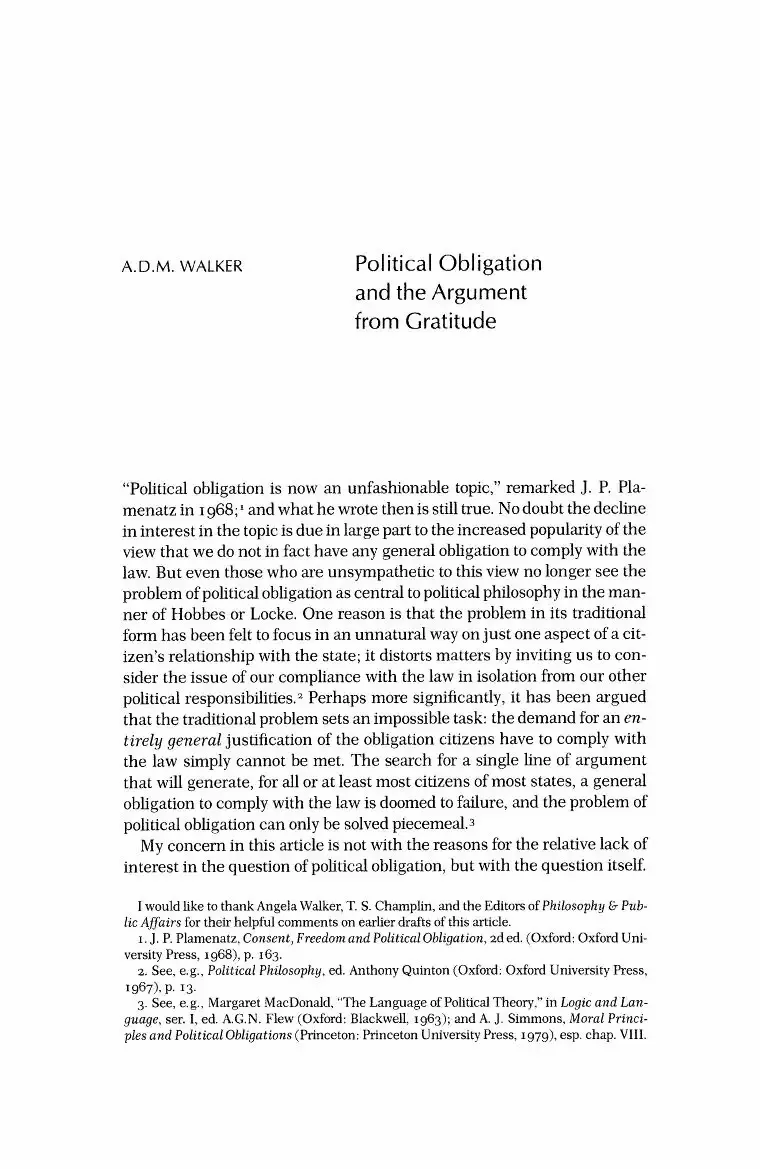
To be clear, the mere fact that gratitude comes out of our good will means that it is not a matter of fairness. It’s not that he gave me 10,000 yuan as the start-up capital of the company, and then after I became a multi-millionaire, I must pay him back 10,000 yuan. This is not gratitude but a commodity transaction. On the contrary, I often give him more money out of gratitude Or something symbolic (for example, we will send carnations to our mother, obviously from a fair point of view, the value of this carnation is far less than what our mother pays for us). Because gratitude is often not about interactivity or what is called consistency. Second, even if the obligation of gratitude allows us to understand it in a fair sense, it does not mean that the grateful person can act out of fair considerations, and the grateful person can only do it out of good will (wanting the benefactor to be good) act of gratitude. This does not mean that the obligation of gratitude between citizens and the city-state is unquantifiable, but that as long as the city-state is still the benefactor of the citizens, the citizens must repay the city-state with acts of gratitude.
Therefore, citizens as beneficiaries must have a good will to the city-state as benefactors, and good will puts forward the following four requirements for beneficiaries:
1. When the beneficiary will not pay a big price for it, the beneficiary should help the benefactor who is in need or in a difficult situation.
2. The beneficiary must comply with the reasonable demands of the benefactor.
3. The beneficiary should avoid harming the benefactor and avoid doing things that conflict with the benefactor's interests.
4. The beneficiary respects the rights of the beneficiary.
We can see that there are many requirements for beneficiaries above, but in fact, the establishment of these requirements is not unconditional. Walker listed two principles that need to be followed in the relationship of political obligations arising from grace-gratitude:
1. The principle of relevance: The requirements of the city-state law for citizens' obedience must be closely related to the above-mentioned relationship of grace and gratitude.
2. The principle of independence: the theory of gratitude must be independent and self-consistent, and all behaviors required by the theory of gratitude must be based on gratitude itself rather than other preset value standards. For example, a city-state cannot specify another standard of value, such as "order." If a city-state claims that because it wants to maintain social order, the city-state requires citizens to repay their gratitude: at this time, a simple theory of gratitude cannot provide rationality for its claim, but it still needs to demonstrate why "social order" is necessarily worth pursuing by the city-state Yes , this violates the principle of independence.
So it seems that using A and B to demonstrate that people must obey the laws of the city-state violates the principle of relevance. Because people obey the law in many cases and cannot help the city-state in trouble (for example, if you obey the Jewish laws in the Third Reich of Germany), you cannot use A to argue that people should obey the city-state laws. As for B, the city-state’s law for citizens’ obedience is a mandatory request backed by violence rather than a non-mandatory demand. We understand from common sense that the benefactor compulsorily orders the beneficiary to repay the favor is inappropriate. If the benefactor forces the beneficiary to repay the favor, it is difficult for us to think of it as a relationship of gratitude. Therefore, B cannot be used to prove that people should abide by the laws of the city-state. As for D, it violates the principle of independence. If we say that citizens must obey the laws of the city-state out of respect for the rights of the city-state, it has been presupposed that the city-state has the right to make citizens obey the law. This does not answer why the city-state has the right to obey the law. The question of legal obligations.

Then only C is left. Then some people will question whether C conforms to the principle of relevance, because obeying the law may damage the interests of the city-state and conflict with the interests of the benefactors. For example, I believe that if a doctor like Dr. Li obeys the regulations of the authorities and allows the virus to spread, it will obviously damage the interests of the city-state.
Walker responded in this way: Generally speaking, if there is no observance of the city-state laws, the city-state cannot exist, so in most cases the violation of the city-state laws is against the interests of the city-state. But this does not mean that to protect the interests of the city-state, citizens are required to obey every city-state law, no matter how blind, misunderstood, unjust or enslaving the citizens' obedience. Sometimes, the violation of a law is beneficial to the interests of the city-state. At this time, the theory of gratitude will require citizens to violate this law. So we can find that Walker's requirement for citizens to obey the laws of the city-state is conditional. This obedience must meet the attitude of gratitude, which is the requirement of good will.
Let’s summarize the whole theory of gratitude as follows:
1. A citizen who benefits from X has a moral obligation not to do things that are contrary to X's interests.
2. Every citizen benefits from the city-state.
3. Every citizen has an obligation not to do things that are contrary to the interests of the city-state.
4. Disobedience to the law is in conflict with the interests of the city-state.
5. Every citizen has the responsibility to obey the laws of the city-state.
Regarding the above-mentioned theory of gratitude, there is such a question: when most people violate the laws of the city-state, they do not have the evil will to the city-state (will will). Violations of city-state laws are not contrary to good will in many cases.
Walker responded to this question in this way: the act of gratitude requires a lot of good will, and the lack of good will will lead to behaviors that violate the interests of the city-state, and the lack of good will does not necessarily mean that the beneficiary has clear malice towards the benefactor, It may also be neglected and so on. Therefore, the problem is not whether to violate the good will, but the lack of good will. As long as the citizens lack good will for something the city-state does, then the citizens have not fulfilled their duty of gratitude to the city-state.
The second question about the theory of gratitude is: Many illegal acts of individuals have nothing to do with the interests of the city-state, such as bigamy, such as drunk driving that did not cause an accident. It's standardized.
The response to this question is: This perspective of looking at one thing in isolation is wrong. Although drunk driving alone cannot touch the interests of the city-state, if a large number of people drink and drive, it will definitely bring a lot of life and property to the city-state. loss. The collection of these small illegal acts will threaten the interests of the city-state . At this time, every illegal act threatens the interests of the city-state.
The third question about the theory of gratitude is that the relationship between citizens and the city-state is not a benevolent relationship, but a commercial relationship: the city-state provides something to the citizens, and the citizens buy it with taxes, so this has nothing to do with gratitude.
The responses to this challenge are: One, there may be gratitude in business relationships. Second, many citizens are still taken care of by the city-state without paying taxes , so it is difficult to say that there is a commercial relationship between citizens and the city-state. Third, this kind of questioning regards the regime and the city-state as one thing . The government may collect taxes from you, but you do not pay taxes to other citizens. The beneficiary of the theory of gratitude is a citizen, and the beneficiary is all other citizens, a city-state composed of these citizens, rather than a tax-collecting regime.
Gratitude theory doesn't hold that the city-state is the source of most of its citizens' happiness, nor does it recognize that all citizens receive the same level of favor from the same city-state (think blacks and whites in 19th century America, or workers and capitalists in Britain) , There are also great differences in the favors given to citizens between different city-states, which means that the weight and strictness of the gratitude obligations of citizens in different city-states are different. Citizens who did not receive favors from the city-state (such as the German Jews during the Nazi period) naturally did not have to show gratitude to the city-state. Also, even if the citizens have received a lot of favors from the city-state, that does not mean that the city-state is justified in harming the citizens.

So we can see that although Walker's theory of gratitude is much more adequate than Socrates' argument, its actual normative force is far weaker than Socrates' point of view. According to his theory of gratitude, in fact, only a law that is really beneficial to the city-state in a city-state that really represents the majority of the people and actually gives citizens benefits is a law that citizens are obliged to obey.
3 Simmons' refutation of the view that citizens have a duty to obey the state
We have mentioned above that Simmons summed up the three strategies of demonstrating political obligations from the "Kerry Piece": natural obligation, connection and transaction. Below, Simmons will refute these three one by one, including the above, of course. Gratitude theory, will usher in this refutation.
Before we begin, it is necessary to clarify that some people will appeal to the legitimacy of the citizen's obligation to obey the city-state to a kind of citizen's emotional loyalty or approval, and it seems that the city-state that can win the citizens' loyalty and approval is worth citizens obey. However, this feeling of loyalty or approval can be shaped by the administrators of the city-state. The city-state can make citizens emotionally loyal while enslaving them through brainwashing or fooling the people. So loyalty or approval cannot be a source of legitimacy for a citizen's obligation to obey the city-state.
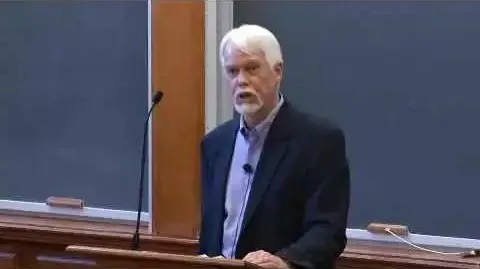
① Political obligation as moral requirement
As we said before, a political obligation is a moral requirement (not a legal requirement, because we have to ask where the legitimacy of our obedience to the law comes from), so Simmons makes two distinctions between moral requirements: first, all moral requirements can Divided into general and specific moral requirements. Second, all moral demands can be divided into voluntary and involuntary moral demands.
The so-called universal requirements mean that no matter what special identity, role and interpersonal relationship a person has, he must abide by the obligation. For example, under normal circumstances, a person cannot murder another person, whether he is related to the other person as a father and son or just a stranger. The so-called special requirements mean that a person has to abide by moral obligations because he has a special interpersonal relationship with another person or group. For example, because we are in a family, we have the responsibility to care for each other.
The so-called voluntary moral requirements mean that a person has to obey because of his own commitment or voluntary acceptance of certain benefits. For example, if I choose to be an employee of a certain company, I have the obligation not to disclose commercial secrets. Involuntary morality means an obligation to obey simply because I was born that way, or simply because I was put into a role or position. For example, "Because you are a woman, you have to serve men."
From these two distinctions we get four moral obligations:
1. Universal voluntary moral obligations
2. Universal involuntary moral obligations
3. Special voluntary moral obligations
4. Special involuntary moral obligations
But the first is self-contradictory, because "universal" means that I cannot choose to enter into a particular relationship, and I am forced to be responsible to everyone. So in fact there are only 2, 3, 4 three kinds of moral obligations.
We can map these three moral obligations to three ways of arguing for political obligations:
The natural obligation means that as long as the city-state is just, then I will obey, so it is a universal involuntary moral obligation.
The relational form regards birthright as the source of obligation, and thus it is a special, involuntary moral obligation.
The transactional style regards the exchange of benefits as the source of obligations, so it may be a special voluntary moral obligation (for example, citizens choose to give the right to use violence to the city-state in exchange for the protection of citizens by the city-state), or it may be a special non- Voluntary (such as taxes) moral obligations.
In reality, it is generally believed that the political obligations of citizens are for a specific city-state, so the connection and transaction expressions are more frequently used to demonstrate political obligations than the natural obligation expressions. Natural obligation requires us to obey as long as this city-state is just, which means we have to obey all just city-states, because it is entirely possible that multiple city-states are just at the same time. However, although a person may obey the laws of many city-states at the same time, hold the nationality of many city-states at the same time, and even serve in the army of several city-states at the same time, this cannot exclude the exclusivity of political obligations themselves. Political obligation itself means that citizens can only be loyal to a certain city-state. For example, citizens have the political obligation to pay taxes. If a person cannot do all economic activities in Russia but pays taxes to the United States, even if he goes to send money to the United States, the United States The IRS has no legal reason to collect his taxes. Arguing political obligation from natural obligation itself cancels political obligation. So those who hold the view of natural duty either have to figure out how natural duty requires us to obey a particular city-state, or they have to figure out how natural duty allows political duty. There will be no such problem with relational and interchangeable forms, because they are all special.
② Contact argument
Let's look again at the Associative Account. The contact form is basically adopted by most city-state political textbooks, such as "We are citizens of the republic, and we must abide by the laws of the city-state."
But if you think about it seriously, few people think that just having an identity requires us to fulfill political obligations, because the rule of this city-state may be very brutal and oppressive. To agree that a 13-year-old was exiled by Stalin to starve to death in Siberia clearly goes against our moral intuitions. On the other hand, a city-state can often claim those people as its citizens at will and demand their obedience . For example, England claims that the Scots are their subjects and so on. So it's not convincing that we're required to obey because we've got a certain status.

However, political philosophers did not stop at a simple connection theory. They proposed three more convincing connection theories:
1. Nonvoluntarist Contract Theory
2. Identity Theory
3. Normative Independence Theory
1. The so-called involuntary contract theory means that a person finds himself in a social network composed of expectations and commitments of different To function properly, one should obey the city-state that organizes these expectations and commitments, to be a healthy member of this social network. For example, A and B are long-term neighbors, and B wants to travel far away, so he asks A to help watch the house. Interactions make up our lives, and we can't live without destroying the interactions that make up our lives.
Simmons refuted the theory of involuntary contract in this way: this theory can well explain why we obey family members, friends or neighbors, which are closely related to our personal life, but when the scope of time and space extends to the entire city-state, it is difficult for a Liaoning person to say In the same social network as a Sichuanese, there is no contractual relationship between a Liaoningese and a Sichuanese , so the principle of involuntary contract cannot be applied at the city-state level.
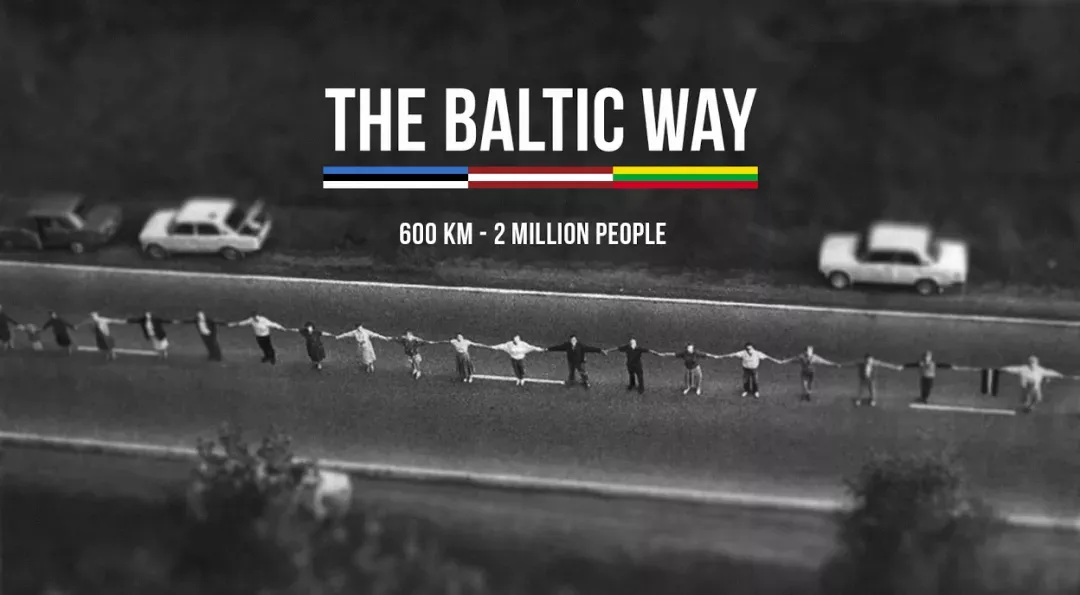
2. Identity theory seeks to identify our most fundamental identity in a society, that is, the identity that constitutes our self-identity. For example, old people/young people, men/women, intellectuals/workers, etc. Identity theory hopes to weaken the differences of these identities and point out the key identity of our self-identity: a certain countryman. Because the citizen constructs himself with the identity given to him by the city-state, he should obey the city-state.
Simmons argues against identity theory this way: This theory still doesn't tell us why just having an identity justifies our moral obligations. It is not because we have an identity that we have moral obligations, but we must first examine whether this identity is moral, and then decide whether we will undertake the moral obligations brought about by this identity.
3. The theory of norm independence means that the political obligations of citizens come from the social and political practices of the place where the citizens live. To put it bluntly, this means that the legitimacy of political obligations comes from custom (in a legal sense, it is a precedent). For example, there is a view on the Internet that "our country has no homosexual tradition, and the West has a Christian homosexual tradition (author's note: this is nonsense), so we should defend our country's law that does not recognize homosexuality." We intuitively think that justice should be stable, and the standard of justice should not change every day, which will lead to chaos, so we think that stable customs are reasonable. At the same time, we know that customs are local, and the reason why local customs can become a source of rationality for universal obedience to city-states is because local customs often require us to obey super-local city-states. For example, in the federal system of the United States, citizens are subject to the state, but states are subject to the city-state in order to maintain a good relationship. Therefore, citizens' submission to the city-state is actually subject to the local state.
Simmons counters the norm-independence theory thus: it still wants to justify the rules formed in social and political practice independently of any external moral principles, and then treats these rules as the source of the moral obligation to regulate citizens' political obligations . The question is, how can it be said that such a custom formed in practice is morally justified (foot binding is obviously a deep-rooted custom)? "It's always been like this, isn't it?" If these customs are justified by external morality, why don't we directly obey that morality, that value standard, but obey customs? Therefore, the custom formed by local practice has reference significance in some specific and specific situations, but it still cannot be used as a general or a source of legitimacy for a political obligation that clearly stipulates the application conditions.
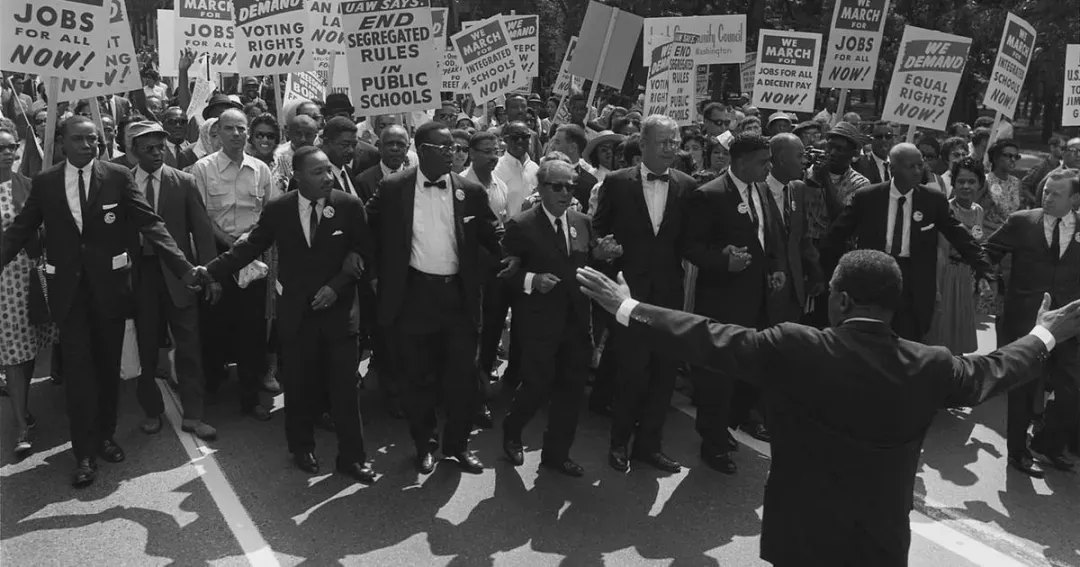
③ Transaction Proof
Now let's look at transactional theory, which is divided into two types: consent theory and reciprocation theory.
The theory of consent refers to the political obligations that citizens voluntarily formulate in the face of the city-state through deliberate promises or contracts. The theory of reciprocity means that citizens agree to receive benefits from the city-state by obeying the city-state.
There are several types of endorsement theories:
The first type is Locke’s actual consent (Actual Consent), and actual consent is also divided into two types. The first type is express consent, that is, citizens clearly express their promises in language and city-states and sign contracts. The second is actual acquiescence (tacit) consent, that is, citizens implicitly agree to the rule of the city-state through actions (similar to Socrates' point of view).
The second theory of consent is dispositional consent, which means that although citizens do not agree at the moment, citizens will definitely agree when the time comes.
The third type of consent is Hypothetical Consent, which sets up an ideal image of citizens themselves. It believes that if the current shortcomings of citizens are removed in hypothetical, only completely rational people will be left. The theory that people must agree to some form of city-state that we all should accept is Rawls's veil of ignorance.
As we shall see, tendentious assent is not convincing. For example, if A promises to B to bring the goods next year, B can buy it, but this does not mean that B has to pay for it this year. As for imaginary consent, it is not so much a transactional theory as it is a theory of natural obligation. In essence, there is no transaction between citizens and the city-state, but we conceive a city-state that follows the true moral or justice criterion , this concept of a city-state is analyzed from the concept of an ideal man, and the reason why an ideal man is ideal is precisely because there is a necessary relationship between him and the ideal moral code. Such a theory of natural duty has already been refuted earlier.
Finally we come to the theory of practical consent. For the actual expression of approval, first of all, there are very few situations where citizens are given the opportunity to express their approval of the city-state’s rule. society) made. Democratic voting seems to be a way of expressing approval, but voting is not an obligation, and political obligations themselves precede democratic voting. For example, before voting, the city-state stipulates that citizens are obliged to express their demands through legal democratic means. Instead of violence and so on.
As for the actual tacit consent, it is difficult for us to say how clearly a citizen’s actions in practice show his voluntary obedience to the city-state’s rule. Citizens are often forced to obey , for example, citizens cannot immigrate because of insufficient ability or city-state restrictions, or Citizens who want to rebel against the city-state have to pay a huge price so that he has to submit to the city-state rule. Therefore, it is difficult for us to say which of the existing city-states can use the theory of actual consent as the source of ruling rationality.
Let's look at exchange theory again. There are two types of exchange theories . The first is the theory of fairness, which focuses on the equal exchange of interests between citizens and the city-state; the second is the aforementioned theory of gratitude, which focuses on the citizens’ return of favors to the city-state.
The theory of fairness holds that the life of citizens in a city-state is based on the cooperation, dedication and sacrifice of other people in the country. Therefore, citizens are obliged to pay to the city-state and obey the rule of the city-state. Gratitude theory has been explained earlier. Simmons believes that in contemporary city-states, various interest chains are so complicated that it is difficult for me to say that the citizens of the entire city-state are on the same interest chain and have the same interests as me. For example, the interests of the bourgeoisie and the working class in a bourgeois city-state are opposed. Of course, I am just giving an example. A serious analysis requires a lot of political economic analysis.
Another point is that other citizens of this city-state did not specifically ask me to give back to them when they labored and paid, and I did not accept their contributions voluntarily (we were "forced" to accept these contributions from birth) . A teacher will ask the school to return her salary, and a worker will ask the factory to return his salary instead of asking me to return them. In most cases, their work is not intended to benefit me. In this way, I have an obligation to work for It would be far-fetched to give back to them and obey the city-state. (Of course, this kind of rebuttal is also problematic. For example, a lifeguard in a swimming pool saved me from drowning according to my job duties. I should still thank him.) So the exchange theory is also difficult to convince.
That concludes Zapp's first installment of civil disobedience. I have given some common arguments for political obligation above and introduced some basic counterarguments. There are other ways to refute why citizens are obliged to obey the city-state. In the next part, I will introduce the views of philosophical anarchism and Rawls. And this article has not yet touched on the conditions under which we are obliged to resist the rule of the city-state, and why we have the right to violently resist, so I will also introduce Candice Demar in the book "The Duty to Resist" in the next article. the opinion of. In addition, if readers are interested, it is strongly recommended to read the references listed below, so that the reading effect will be far better than reading this Zhepu. /
references:
1. (Loeb Classical Library) Plato, Harold North Fowler - Crito.
2. Excerpt Political Obligation Gratitude: Walker
3. Excerpt Political Obligation and Authority: A. John. Simmons


Like my work?
Don't forget to support or like, so I know you are with me..
Comment…